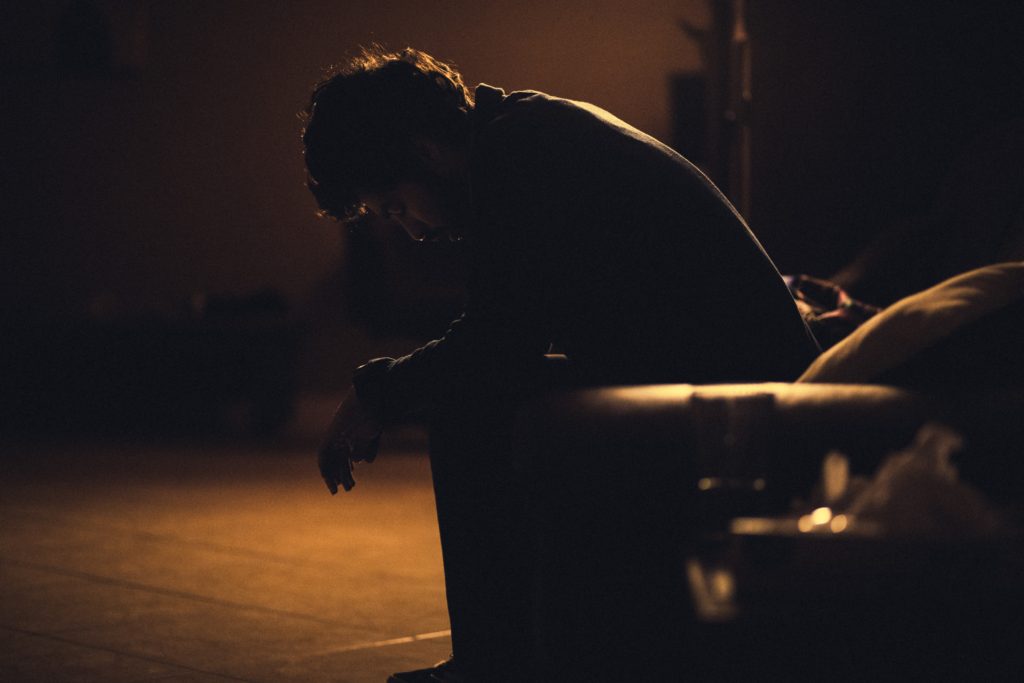Mental Illness: How To Travel With Undiagnosed Friends

Traveling With Someone With an Undiagnosed Mental Illness
I’ve taken many trips with people who suffer from a variety of mental illness and I’d like to share a couple of my experiences.
The identities and locations are changed to protect the innocent however, the situations are very real.
I share this not to shame those with mental disorders, but to let you know the challenges and difficulties that arise on both sides if a mental issue should flare up while traveling.
What Would You Do?
As you read I encourage you to put yourself in my shoes, or in the shoes of my travel companion.
Consider how YOU might handle the situation as presented.
It’s okay to judge whether what I did was right or wrong. Life is about learning and growing, I don’t mind being the example.
Mental Illness Break Down in Mexico

Many years ago I went to Mazatlan with someone I knew who suffered from mental illness.
Before we left he seemed to be on the upswing, not the down. I thought a short six-day trip would be okay.
The first four days of the trip were so much fun, but on day five he slipped into a deep, dark place of uncontrolled rage.
A Little History
When we met, this person was the nicest guy.
However, his nice-guy personality gradually disappeared until he turned into someone I didn’t recognize and grew to fear.
Mazatlan was hardly the first time I’d dealt with his rage and anger, but it was by far his most frightening episode.
It was also the last time I ever talked to him.
He’d been going to a therapist for a while, claiming to work through his anger issues. After this trip, I learned he’d been going to the therapist to lodge a never-ending list of complaints about how the world was against him.
Abusive Behaviors Are Slow to Surface
If you’ve never been in an abusive friendship or relationship with someone who suffers from an undiagnosed mental disorder it’s difficult to understand how SLOWLY the more negative aspects of their personality emerge.
As our friendship slowly progressed and he got more comfortable around me, his mental issues and uncontrollable rage slowly surfaced. I would bet most abusive friendships and relationships slowly shift like this:
- What starts as a death stare turns into a condescending comment
- That condescending comment turns into a scream of obscenities
- The screams turn into tantrums
- The tantrums become physical posturing
- Physical posturing turned into threats of violence, which eventually led to actual violence
Over time his confusing circular arguments got more and more confusing.
The gaslighting was so subtle I eventually stopped questioning the crazy things he said and did.
It was easier to agree that I was the crazy one.
Don’t Judge, It’s Hard to Escape Abusive Relationships
Don’t judge your friends who stay in abusive friendships or relationships too harshly. Relationships are complicated and sometimes it takes a while to understand how an undiagnosed mental disorder will affect those involved.
By the time most people realize they’re in an abusive relationship, they’re completely entrenched.
Finances are mingled, there’s a mortgage, sometimes there are kids.
Leaving is scary because the threats of physical violence, financial disaster and suicide are very real.
The night I decided I could no longer associate with my mentally ill friend, I received 66 text messages promising he was about to drive his car into oncoming traffic.
That’s a lot of innocent and unnecessary deaths to carry on your conscience.
Then, when you finally muster the courage to leave the abusive friend behind, it takes a lot of time to undo the mental damage the relationship caused, and that’s if you work really hard at it.
Abusers Aren’t Always Abusive

To compound the problem, people who suffer from mental disorders aren’t always stereotypical out-of-control crazy, angry people.
When they’re on the upswing and acting normal they often have amazing, dynamic and charming personalities.
Most people I know who suffer from mental disorders are a lot of fun to be around when they aren’t manic. They offer the world so much good when they’re thinking clearly. It becomes easy to justify sticking around.
You want to nurture that positivity.
There are periods during an abusive friendship or relationship that are really great. It’s simple to forget the bad times because you want so badly to believe that things can stay great.
It’s Easy To Get Caught Up in an Abusive Cycle
Can you see how easy it is for innocent people to get caught up in abusive cycles?
These victims hold out hope for true healing of the person they love. They convince themselves that the violent behavior “won’t happen again”.
Once you’ve become entrenched in an abusive cycle it’s really hard to get out. Worse, if you grew up in an abusive household, you may not recognize abuse, even if it’s happening right in front of you. Or to you.
Over the course of our relationship, I’d been forced to call for help a handful of times when he threatened physical violence or implied (or attempted to) run me over with the car.
When he calmed down he always felt very bad and promised to get help.
I see now that he never took getting help very seriously.
One Final Trip, Then It Was Over
When he suffered through these manic episodes at home I had resources.
I could call 911 or go to a hotel. I could drive away and go somewhere safe.
By the time we decided to go to Mazatlan I’d grown incredibly tired of my life being constantly disrupted by verbal abuse and threatened violence. His therapy was not working. He seemed to be getting worse, not better.
This last trip was right before Christmas and when we got on the airplane I knew we were in our final season.
It didn’t feel right to say goodbye during the holidays.
I figured one final fun trip wouldn’t hurt anything. I crossed my fingers that we weren’t going during a rage week.
Boy Was My Timing Bad
I found myself stuck in a hotel in Mazatlan, Mexico with someone suffering through a manic rage . . . with a flight home that didn’t leave for another 30 hours.
As the time slowly ticked by, the situation became much worse than anything I’d experienced.
The screaming didn’t end, the nasty swear words directed at my personal character didn’t stop, the fists thrown through the air nearly striking my face were consistent and I balled up instinctually when he picked up things he aimed but never actually threw at me.
At one point he stood in the window and told me he was going to jump.
He’s lucky I didn’t push him out the window. I was tempted, but concern about surviving a Mexican prison stopped me.
I Will Never Travel Again Without a Working Cell Phone
This was all before cell phones worked outside of the United States.
We hadn’t bought an internet plan when we checked in to the hotel, not that there was anyone in Mazatlan I could email for help.
I made a brave attempt at escape, to run past him and out the door.
In his violent rage, he pushed me into the bathroom and barricaded me inside.
Even if I had gotten outside, what could I really do in a foreign country without any money or my passport?
When he finally let me out of the bathroom I considered using the room phone to call for help. I stopped before I dialed because I didn’t want to involve the poor hotel clerk and I had no idea what the emergency number was in Mexico.
I figured that even if I could summon the police, they’d probably leave him with me after investigating, which would make the situation worse.
My hope was at some point someone would hear him screaming at me and check on us. Then, I could sprint across the room, grab my wallet and my passport and run out the door while it was open.
Unfortunately, no one ever came by.
The Whole Experience Was Frightening

I’m not going to lie.
Being in Mexico with someone suffering through an uncontrolled manic rage was one of the most frightening experiences of my life.
Ultimately I chose to hunker down, take the abuse and hope he didn’t kill me.
How Did It End?
I waited it out.
I knew eventually we had to check out of the hotel and go to the airport. We both had to go back to work.
Thankfully he had enough mental capacity to realize he couldn’t hold me hostage forever. Eventually, we had to leave.
On the way to the airport, his entire demeanor changed again. You’d never met someone so nice in your whole life.
Part of My Past
I no longer interact with this “nice guy”.
Although this was by far the most out of control he’d been, this wasn’t the first time his rage had taken over. I knew it wouldn’t be the last and it would get worse.
If I didn’t remove myself from the situation, I knew this “nice guy” would snap and eventually kill me.
What Would You Have Done Differently?
You know the history, you know the situation,
I’m curious how you would have handled the situation differently? What could I have done differently? If you’re curious, here’s what happened next:
Severe Anxiety and PTSD Followed
In addition to severe anxiety, I left this situation with a serious case of PTSD.
I had a lot of big, exciting plans for my life, all of which all went on the back burner while I took the time to heal and seriously deconstruct the choices I made that got me into such a bad situation in the first place.
“Healing” turned into a very long, painful process. It took almost five years before I started to feel “normal” again.
I’m totally fine now.
But man do I HATE Mazatlan.
Mental Illness Tour Through Thailand

Shortly after this experience (and still before cell phones worked everywhere) I invited a close friend to take an all-expenses-paid trip (paid by me) to Thailand. I wanted to thank them for helping me through a very difficult period in my life.
Unbeknownst to me, right before we left my friend had started a new medication to control their mental illness.
I wish they had told me about the medication change, I would have reacted MUCH differently.
In fact, we probably would have stayed home.
Confused and Disoriented
At the beginning of the trip, my friend became completely disoriented. I quickly realized they had no idea where we were or what we were doing.
They started telling me things that made no sense and their words were slightly slurred.
They’d respond to questions only after I asked two or three times, if they answered at all.
I’d never known this person to drink or do drugs so their behavior was baffling.
We were very far away from home and if I’m being honest I started to feel very confused by their behavior and incredibly uncomfortable. I was halfway around the world with someone who was acting like a zombie, and I had no idea why.
How To Get Them Home
I began to worry about how I would get this person home at the end of the tour. We were traveling without tickets and figuring out the best path home takes focus and a lot of patience.
When they completely stopped talking or answered using, “Um . . .” I started to worry there was something seriously wrong with them.
I wondered if it would be better to abandon the tour and take them home immediately.
As I studied the airport situation at our tour stops, I realized we were visiting all small cities, none of which offered direct flights back to the United States.
I wasn’t sure I wanted to abandon the tour in the middle of the trip and attempt to fly ticketless on an Asian carrier back to a major city like Tokyo, Singapore or Beijing.
I knew once we left the tour, we wouldn’t be able to rejoin. If I couldn’t get us on a flight to a major hub I’d have to find a hotel and the process of getting home would start all over again.
If I could hold out a few more days we’d be back in Bangkok where we’d have more flight options.
We Finished The Tour
I took a deep breath and decided to finish the tour.
I made the best of it, dragging my friend through city after city, them not knowing where we were or what we were doing. Me, pretending like everything was fine when it very clearly wasn’t.
In hindsight, we probably should have spent our days hanging out in hotels. It would have been less stressful for them, and for me.
When we got back to Tokyo we made it out on the first flight available. Thankfully we got first class.
The Worst Part of the Story
Although I did everything in my power to keep this person safe and comfortable, once we got home they complained non-stop to anyone who would listen about how terrible their all-expenses paid tour was.
I tried not to take it personally, I’m pretty sure they don’t actually remember any part of the trip anyway. However, their behavior rattled me enough that to this day I still keep my distance.
What Would You Do?
I’m curious what you think about this situation?
Even if I’d known there was a new medication that caused the personality change, could I have done anything differently?
Should I have figured out a way to come home early?
I’m dying to know what you would have done.
Everyone Has Bad Days

I’ve had other travel companions with mental disorders get unnecessarily mad at me for things that were way beyond my control.
I’ve stood silently while I’ve watched friends who struggle mentally be cruel to others.
I try to show grace. I always try to take the high road. Sometimes it’s very difficult.
Sometimes it downright sucks.
Discuss Mental Illness Before Your Trip
If you’re aware that your travel companion has a mental issue, you must make it very clear before you agree to travel with them that they must take their medication as prescribed throughout the entire trip.
Also make it clear that you WON’T be understanding or accepting of their choices if they drink alcohol or do any drugs that might adversely affect their medication.
If YOU are medicated because you suffer from a mental disorder, you owe it to your travel companions to make sure you’re on the right medication.
Under no circumstances should you change your medication right before a big trip, especially if there’s a big time zone change.
Above all, please take your medication as diagnosed while you’re traveling.
I know how difficult and uncomfortable discussions about mental illness are, especially with those who suffer. It’s better to set some ground rules before you go, that way you already know what actions to take if problems arise.
I would recommend NOT traveling with someone who suffers from a mental disorder if they aren’t currently and actively taking steps to control their mental disorder.
What To Do When Mental Illness Appears
If you decide to travel with a person that has a mental disorder and they start to exhibit signs on your trip, here are some options:
- Show grace, patience and understanding
- Deal with it, although your trip memories will be uncomfortable and your memories will be cloudy and grey
- Stop the trip and go home together
- Stop the trip and go home alone
- Send them home
- Part ways and let them figure their own trip out
Attempting to reason with someone who’s suffering through a mental issue doesn’t work.
Someone who’s manic isn’t thinking normally or clearly and rational conversation will go nowhere. You have to accept the situation for how it is or figure out how to gracefully end your trip alone or together.
In Most Situations, It’s Best To Go Hone

If your travel pal is really struggling, under most circumstances I don’t recommend continuing the trip.
It’s exhausting and not much fun dragging someone through a foreign country when they’re suffering through a manic episode.
If they’re having a real mental breakdown, they need to go home and get help. It’s in both of your best interests to get them there as safely and as quickly as possible.
If you’ve ever experienced traveling with someone going through a mental issue, I’m so sorry. I hope everything worked out okay.
If your travel companion suffers from a mental episode while traveling, make the best judgement call you can with the information you have.
Know that whatever decision you make will probably feel like the wrong choice.
Remember that someone else’s mental disorder isn’t your fault and try not to take their attacks personally.
Be aware that they probably won’t recognize, appreciate or even remember your “help” later. In fact, there’s a good chance they’ll hold it against you.
Show them grace and understanding. It’s the kindest thing you can do.
Resources
If you or someone you know struggles with mental health issues or is going through a difficult period in life, help is out there. There is no need to suffer alone.
National Institute of Mental Health
Thanks For Visiting
If you enjoy what you’re reading, the kindest thing you could do is Like, Comment, Share and Subscribe. I appreciate your support.
In fact, while you’re here take your time and poke around the site, see if there are any other topics you’re interested in. If you have any questions or see any typos, please let me know!
If you’re wondering what prompted me to share my travel knowledge, check out the About Me section.
I’d love to hear about your travel experiences, good and bad. We’ll all be better travelers if we learn from one another.
The Art of Travel (TAOT) ~ Written by Kylie, these awesome photos came from Unsplash.



Recent Comments